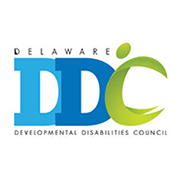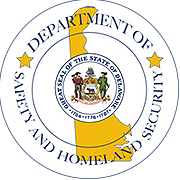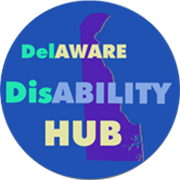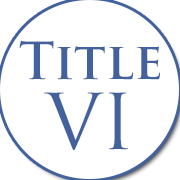Council Projects 2019
Down syndrome and Alzheimer’s Disease Public Awareness Campaign
Council continues to distribute materials and resources developed in 2018 concerning the staggering correlation between individuals with Down syndrome and the development of early-onset Alzheimer’s disease. Sobering statistics that show people with Down syndrome are almost 100% likely to develop early-onset Alzheimer’s disease. Partnering with the Alzheimer’s Association of Delaware, Christiana Care Health Systems, the Swank Memory Care Center, the Down syndrome Clinic at Wilmington Hospital, doctors, geneticists, and numerous parent advocates of children with Down syndrome, the Council began developing a public awareness campaign in 2017, with implementation and distribution taking place in 2018 and continuing into 2019. Campaign materials seek to educate parents of people with Down syndrome on the risks of developing early-onset Alzheimer’s, to familiarize them with signs and symptoms of early cognitive decline, and to urge them to start planning service coordination and future financial planning now. The materials intended for legislators and policymakers are similar, but also include information about the potential impact on the state’s service system and Medicaid budget. Parents, as well as doctors, were interviewed and shared their insights. The parent and doctor video interviews are available on the DDC’s YouTube channel. Council is currently planning Phase II of this project, which will build on the materials and feedback from Phase I in 2018. The goal of Phase II in 2019 is to present materials that show more real-life experiences shared by caregivers and people with Down syndrome who have experienced or who are currently experiencing the effects of Alzheimer’s disease.
2019 LIFE Conference
The Delaware Developmental Disabilities Council was pleased to once again join with their community partners to plan and present the 2019 LIFE Conference. Community partners included representatives from the 321 Foundation, ADAPT Delaware, the Center for Disabilities Studies & Delaware Assistive Technology Initiative, University of Delaware; Community Legal Aid Society; Delaware Department of Education; Delaware Developmental Disabilities Council; Delaware Division of Services for Aging and Adults with Physical Disabilities; Delaware Health and Social Services – Birth to Three Early Intervention; Delaware Transit Corporation (DART), Division of Developmental Disabilities Services; Division of Medicaid & Medical Assistance; Division of Public Health – Child Development Watch; Governor’s Advisory Council for Exceptional Citizens; State Council for Persons with Disabilities; and St. John’s Community Services. The conference was held on January 31, 2019 at Dover Downs Hotel and Conference Center. The Delaware Developmental Disabilities Council was pleased to once again join with their community partners to plan and present the 2019 LIFE Conference. Community partners included representatives from the 321 Foundation, ADAPT Delaware, the Center for Disabilities Studies & Delaware Assistive Technology Initiative, University of Delaware; Community Legal Aid Society; Delaware Department of Education; Delaware Developmental Disabilities Council; Delaware Division of Services for Aging and Adults with Physical Disabilities; Delaware Health and Social Services – Birth to Three Early Intervention; Delaware Transit Corporation (DART), Division of Developmental Disabilities Services; Division of Medicaid & Medical Assistance; Division of Public Health – Child Development Watch; Governor’s Advisory Council for Exceptional Citizens; State Council for Persons with Disabilities; and St. John’s Community Services. The conference was held on January 31, 2019 at Dover Downs Hotel and Conference Center. For 2019, 18.26% of the 564 LIFE Conference attendees identified as being either a person with a disability or the parent/caregiver of a person with a disability. It is important to note that this data was collected from registration entries, and that the question regarding whether a registrant is a person with a disability or parent/caregiver is voluntary, so the number of attendees may actually be higher. The conference planners have observed a steady uptick in the number of individuals with disabilities and parents/caregivers to attend the conference, with 2017 registration data showing just 14.6% of attendees registered as a person with a disability or a parent/caregiver. Attracting more people with disabilities and parents/caregivers to attend the conference by presenting meaningful content as described by attendees in their feedback surveys remains a priority for the LIFE Conference Planning Committee as they begin work on each year’s conference.
Healthy Kids with Disabilities Public Awareness Campaign
nclusive, accessible health and wellness activities are not always readily available to children with disabilities in Delaware. With this in mind, the DDC began working with Sage Strategy & Communication in late 2018 to create a public awareness campaign to shed more light on this topic. Council first set out to identify barriers experienced by families as they sought inclusive health and wellness opportunities by speaking with sample groups of parents. For families, resources and advocacy tools will be provided, as will information regarding the health/wellness/recreation opportunities that are currently available and fully accessible in Delaware. For legislators, information will be provided regarding why expanding access to health/wellness options for children with disabilities is a solid investment in the state’s future. Currently, an interactive website is in the production phase and should be launched by the close of 2019..
Healthy Sexuality for Individuals with Disabilities: An Education and Resource Program
Building on the success of Phase I of this project, Council began planning Phase II in 2019. Council was pleased to begin working with Planned Parenthood of Delaware. The Director of Planned Parenthood met with Council staff and the committee charged with overseeing this project to develop an informed approach utilizing the feedback captured from participants in Phase I. The program is designed for young adults ages 14-22. There is also a separate, companion program designed for parents. While Education and Resource meetings take place at the same time and in the same building, young adults and parents do not participate in the same session, nor are they in the same room. This facilitates free discussion without either parent or young adult fearing being overheard. The information shared with each audience complements the other. Workshops will be held in each county in Delaware during 2019 and 2020. Council will continue to evaluate feedback data to inform “course adjustments” throughout the program.
Junior Partners in Policymaking 2019
Council welcomed Donna-Marie King of Sage Marketing and Communication to facilitate our 2019 Junior Partners in Policymaking program. Donna-Marie used her marketing experience to conduct extensive outreach efforts to recruit participants for the 2019 class. English and Spanish versions of fliers were created & distributed to transition coordinators & special education teachers throughout Delaware, as well as to several organizations that serve teens & young people with developmental disabilities. On-site recruitment was conducted at the 2019 LIFE Conference & the 2019 Transition Fair in New Castle County. On Sunday, June 16, 2019, The Council welcomed the twelve newest members of the Junior Partners in Policymaking family to the Delaware State University campus in Dover, Delaware. Most of the participants would live in campus housing for the following six days and five nights spending their days learning about advocacy, setting goals and transitioning into adult life, and their evenings building a community. Staff was on-call for the participants around-the-clock, with staffers working 12-hour shifts. Staffers were comprised of parents of children with Autism, job coaches, and special education teachers. The participants bonded extremely well with the staff members, with many forming friendships that will continue long after the program’s completion. The Class of 2019 class was unique in that almost all of the participants were male. All of the 2019 participants had already graduated from high school. Historically, the program has not seen the same level of participation from young adults in Sussex County; however the DDC was pleased that all three of Delaware’s counties were represented in this class. Disabilities represented in the Class of 2019 included Autism, ADHD, Hydrocephalus, speech difficulty, anxiety, hearing loss, learning disability, Epilepsy, cognitive disability, and Cerebral Palsy. The participants received a visit from two distinguished guests- House Majority Leader Representative Valerie Longhurst and Senate Majority Leader Senator Nicole Poore. Rep. Longhurst and Sen. Poore facilitated an engaging discussion with the students regarding advocacy and outreach. The participants jumped in with both feet, with one participant drafting a petition on the spot seeking to overhaul DART and asking for the Representative and Senator’s signatures, and another requesting legislation to make the Delaware State Fairgrounds more wheelchair accessible. Yet another young participant asked about coordination of services. The Representative and Senator were incredibly gracious, taking all of the participants’ contact information and following up with them. The young participant’s petition regarding DART now has over 500 signatures on change.org (his goal was 100), and the young man who advocated for improved access at the Delaware State Fair noticed some positive changes at the fairgrounds this year, thanks to the efforts of Rep. Longhurst and Sen. Poore. As is tradition, the week culminated in the participants giving mock testimony at Legislative Hall. While the exact topics presented varied widely from participant to participant, the common theme was one of empowerment, positivity, and a strong desire to advocate for change not only for themselves, but for all people with disabilities.













